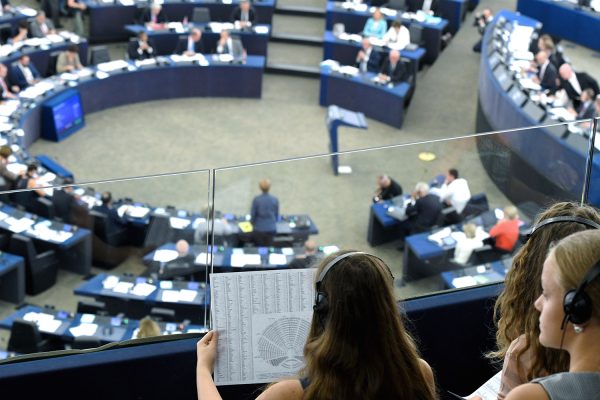
European elections kick off in the Netherlands and the United Kingdom on Thursday with most of the other 26 member states voting on Sunday.
The temptation is to force a single narrative on the elections. American and British media in particular are obsessed with the performance of the Euroskeptic right. But it is only part of the story.
The elections span a continent of 500 million people. Turnout in European elections is usually low, but those who do vote tend to do so on the basis of national, not European, issues. Hence the elections are less a referendum on the EU than a test for incumbent leaders and governments.
To pro-versus-anti-EU narrative also simplifies reality.
Shades of grey
Fewer than one in five Dutch voters want to leave the EU (one poll even puts support for membership at 91 percent), but only 32 percent are satisfied with the way things are.
It’s the same in France, where there is broad support for the EU yet only 33 percent are happy with the way it is run.
Politicians who are clearly pro- or anti-EU, like France’s Emmanuel Macron and Italy’s Matteo Salvini, have an interest in making the election a referendum on Europe. They represent opposing sides in the continent’s culture war.
Macron is the hope of cosmopolitan, college-educated, urban Europe. His 2017 victory over Marine Le Pen, Salvini’s French ally, was hailed as a vindication of liberalism and European integration.
Salvini, whose party has overtaken Silvio Berlusconi’s as the largest on the Italian right, represents the inward-looking Europe of the small towns and countryside. This Europe is wary of immigration and sympathetic to Vladimir Putin and Donald Trump.
But Europe is not a two-party system.
Macron and Dutch prime minister Mark Rutte are liberal allies, but they are on opposite ends of the debate about risk-sharing in the eurozone.
Salvini, Le Pen and Jarosław Kaczyński’s Law and Justice party in Poland are against gay marriage while their Dutch allies see gay rights as intrinsically Dutch.
There are many alternatives to the Europeanism of Macron and the nationalism of Salvini. There are Euroskeptics on the left as well, including Jean-Luc Mélenchon’s France Unbowed and Spain’s Podemos, who call the EU a “neoliberal” project. There are ardent federalists and pragmatists; social democrats who want a more social Europe; liberals who want to complete the European market in services; Greens who call for a more ambitious and EU-wide climate policy; northerners who reject transfer union; southerns who argue for solidarity…
Fragmentation
If there is a narrative in this election, it is political fragmentation. The big democracies of Western Europe (France, Germany, Italy, Spain) used to be dominated by two or three parties. Now it takes at least that many to form a government.
Some have called this “Dutchification”, and it’s not a bad thing. Two-party systems disempower half the electorate every four years and tend to oscillate between extremes. In multiparty systems, the broad middle of the electorate can usually live with the government of the day and policy outcomes become more predictable.
The same will probably happen in the new European Parliament. The grand coalition of the Christian democrats and social democrats could be joined by the liberals of Macron and Rutte, who are expected to demand the presidency of either the European Commission or the European Council in return. The Greens would vote with such a coalition most of the time. The far left and “soft” Euroskeptic right may occasionally get a proposal through. The “hard” Euroskeptic right, represented by the likes of Salvini and Nigel Farage, will continue to shout from the sidelines and accomplish nothing.
Europe will muddle through. Some problems will be addressed, satisfying some voters. Others will fester. Others yet are not in the EU’s purview to begin with — and that will continue not to matter to the voters who care about them.
Like other continent-sized democracies, Europe’s is messy and complicated and often frustrating to the people who participate in it. But most Europeans also know (and many remember) that it’s better than anything we’ve tried in the past.
